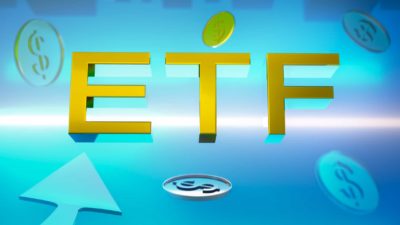I've got my eyes on a few ASX exchange-traded funds (ETFs) as top ideas for retirement.
When considering investments to own in my golden years, I look for three things. They are: Assets capable of producing capital growth over the long term that have the potential to be more stable than the overall ASX share market and pay a bit of passive income.
Retirees may need their portfolios to last multiple decades, so I think it makes sense to continue investing in assets like shares for the long term.
There are two ASX ETFs that I think can tick all the boxes: VanEck MSCI International Quality ETF (ASX: QUAL) and Betashares Global Quality Leaders ETF (ASX: QLTY).
What these ASX ETFs do
Both of these funds focus on the global share market, which I think is good for diversification.
Most importantly, both funds make investments based on several quality metrics. Companies have to rank well on all of the attributes to be included in the portfolios.
QUAL ETF looks for companies with high return on equity (ROE), earnings stability, and low financial leverage. It has approximately 300 holdings.
The QLTY ETF looks for four different quality factors – ROE, debt-to-capital, cash flow generation ability and earnings stability. This fund has approximately 150 holdings.
Ultimately, these ASX ETFs want to own the best of the best global businesses. In my view, if you only own businesses that score high with a high ROE, low debt, and stable (and growing) earnings, they should do well over the long term.
Capital growth
I believe both of these ASX ETFs are capable of delivering pleasing long-term returns.
When companies generate a high ROE, it implies that any additional profit retained within the business can also be used to earn a good return for shareholders and grow profit. Increasing earnings will hopefully translate into rising share prices over time for the businesses within the portfolio.
Past performance is not a guarantee of future returns of course, but the quality businesses have performed well.
Over the past five years, the QLTY ETF has returned an average of 13.4%, and the QUAL ETF has delivered an average annual return of 15.8%.
Possibly more stable than the market
We can't accurately predict what will happen with the share market in the next 12 months. It could go up or down.
However, I think these quality companies have the potential to experience less negative volatility in the future.
Investors typically value a business based on how much profit it makes. If a recession is on the horizon and these companies aren't expected to see profits drop (much), then the share prices could hold up better than lower-quality companies. This could lead to these ASX ETFs falling less in bear markets.
However, outperformance is not guaranteed, as the sellers and buyers decide what prices these investments should trade at.
Passive income
Growing, high-quality businesses are not typically known for having high dividend yields. However, I think they can be capable of providing appealing cash flow to investors.
For starters, any dividends the ETFs receive are passed onto investors. Any crystallised gains made by the ETFs (through sales of shares for a profit) are sent to investors as well. These two elements make up the distributions from these high-quality funds.
According to VanEck, the distribution income return from the QUAL ETF over the past five years has been an average of 2.1%.
BetaShares reports that its distribution yield for the last 12 months is 3.4%.
Retiree investors can also boost their cash flow further by selling, say, 1% or 2% of their ETF holding each year. If these ASX ETFs keep producing 10+% returns, then the investor's wealth could keep increasing over time despite any sales.
I think these high-quality ASX ETF investments can be effective investments for slow-and-steady sales over the years.









